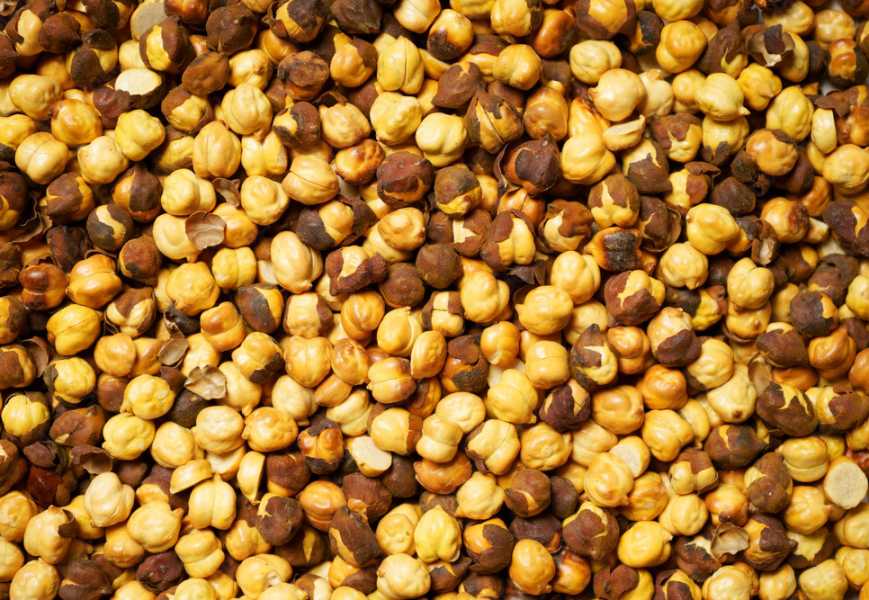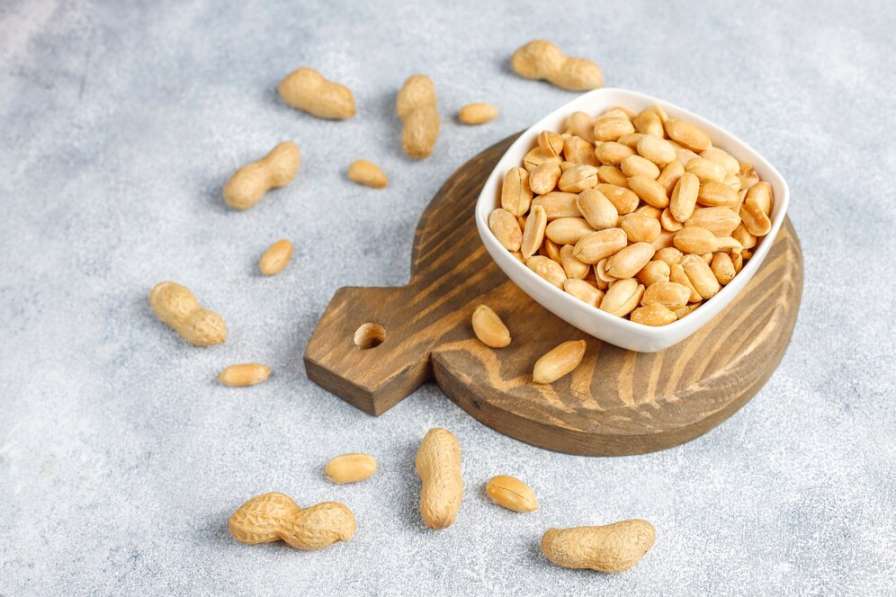Benefits of cashew nuts
Benefits of cashew nuts: cashews are high in fibre, heart-healthy fats, and plant protein while being low in sugar. They’re also high in copper, magnesium, and manganese, which are essential minerals for energy generation, brain function, immunity, and bone health.
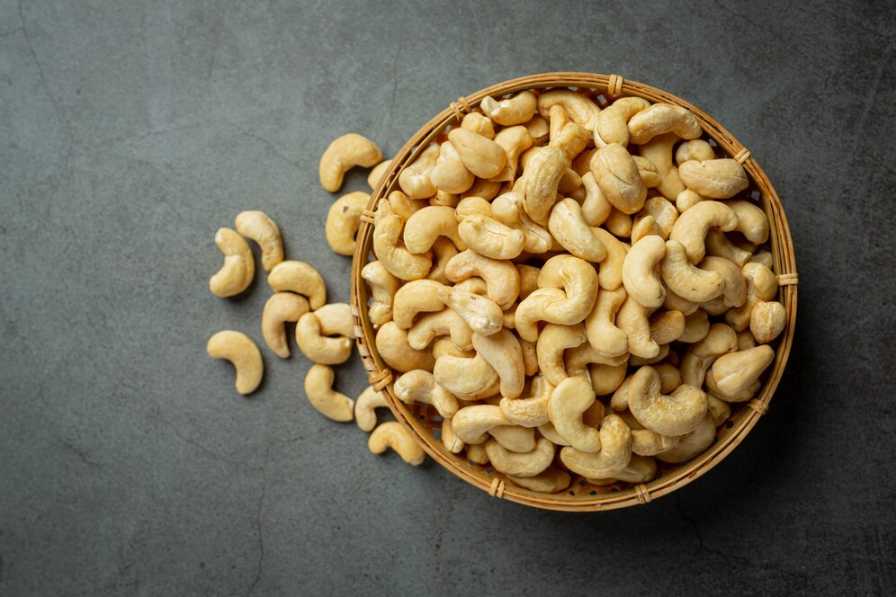
- Cashew nuts originated in Brazil but are now primarily grown in Nigeria, India, and Vietnam. They are high in protein and high in vitamins, fibre, minerals, and antioxidants. Cashews are particularly high in unsaturated fats, which have been associated with a decreased risk of early death and heart disease.
- They’re also low in sugar, a good source of fibre, and have about the same amount of protein as cooked meat. Furthermore, cashews have a high copper content, which is necessary for energy generation, good brain development, and a robust immune system.
- They also contain significant levels of manganese and magnesium, two minerals that are important for strong bones.
10 benefits of cashew nuts:
1. Cashews Promote Bone Health
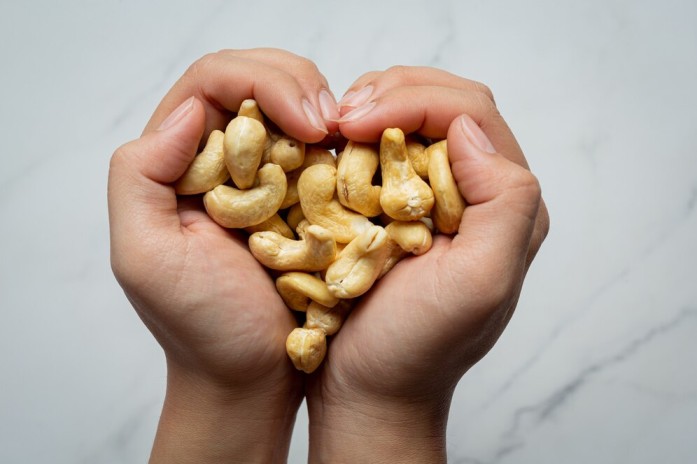
- Cashews have a lot of magnesium, which is good for your bones. If you have bone or joint problems, you can benefit from eating cashews. Cashews are also high in magnesium, which interacts with calcium and vitamin D to keep your bones healthy and strong.
- Eating cashews is beneficial to your health because the vitamin K included in cashews helps preserve bone density and reduces the chance of osteoporosis.
People also read: 10 Benefits of Soaked Almonds
2. Improve Immune System

- Cashews include a variety of elements that support a healthy immune system, including zinc, copper, and vitamin E. Zinc and copper are essential elements for immune cell growth and function.
- Vitamin E, a powerful antioxidant, may protect cells from damage while also reducing oxidative stress and inflammation. For a stronger immune system, reap the advantages of a well-balanced diet that contains cashews.
More read: Foods that boost the immune system
3. Support Healthy Skin
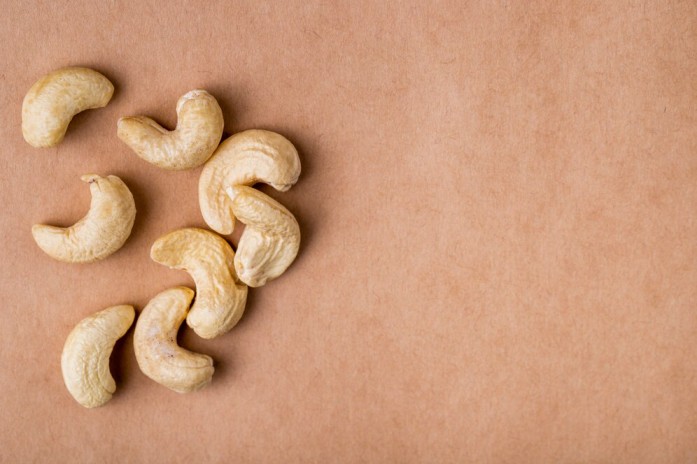
- Did you know that eating cashews has several skin benefits? Cashew nuts are high in copper, which can help in collagen formation, which is necessary for skin health.
- Cashews include vitamin E and selenium, which are powerful antioxidants that protect the skin from free radical damage and premature ageing. For good skin, include a reasonable amount of roasted cashews.
People also read: walnut benefits for hair
4. Increase Brain Function
- Cashew nuts are high in magnesium, vitamin E, and antioxidants, all of which can improve brain function. Cashews contain vitamin E, which promotes cognitive function and reduces age-related cognitive decline.
- Magnesium, as well as monounsaturated and polyunsaturated fats, can help improve cognition and memory. One of the many advantages of consuming cashew nuts is that they help keep your brain healthy.
5. Control Blood Sugar
- Cashew nuts have a low glycemic index, which helps minimise blood sugar rises. While the high fibre component of cashew helps to delay sugar absorption in the bloodstream, healthy fats boost insulin sensitivity.
- If you have diabetes or are at risk of developing diabetes, consuming cashew nuts with a balanced diet can help you control blood sugar levels.
- Moderately include organic cashew nuts in your diet. Cashews have a low carbohydrate content when compared to many other popular snacks. This reduces their effect on blood sugar, making them an excellent choice for people with type 2 diabetes as well as those wanting to prevent the disease.
6. Reducing Inflammation
- Cashew nuts are high in vitamin E, a powerful antioxidant. It helps to reduce oxidative stress and inflammation.
- Cashew nuts may also reduce the risk of chronic illnesses such as tooth decay, ringworm, scurvy, leprosy, warts, and elephantiasis. Cashews are high in magnesium, which helps in the reduction of inflammation.
7. Helps in Weight Control
- Cashew advantages for weight control may be observed since they are a rich source of protein, fibre, and healthy fats.
- Cashew nuts’ beneficial fats and nutrients keep you fuller for longer and prevent hunger cravings.
- However, because cashew nuts are high in calories, they should be used in moderation.
People also read: Healthy Evening Snacks for Weight Loss
8. Improve Digestion
- Cashew nuts, due to their high fibre content, help in digestion by decreasing constipation and facilitating regular bowel movements.
- Cashews include prebiotics, a kind of fibre that assists in the formation of healthy gut flora.
- Cashew nuts, on the other hand, should be ingested in moderation since too much fibre can be uncomfortable for the digestive system.
People also read: Low calorie indian food
9. Benefits for heart health.
- Nut-rich diets, particularly cashews, have been associated with a decreased risk of illness, including stroke and heart disease. A few studies have focused on cashews’ unique heart health advantages.
- According to one study, patients with type 2 diabetes who ate cashews for 10% of their daily calories had lower LDL (bad) cholesterol to HDL (good) cholesterol ratios than those who ate no cashews at all. A low LDL-to-HDL ratio is commonly seen as a sign of excellent heart health.
- Cashew nuts are high in monounsaturated and polyunsaturated fats, which help decrease cholesterol and triglyceride levels, lowering the risk of heart disease. They are also high in antioxidants, magnesium, and potassium, all of which are beneficial to heart health.
10. Decreased cholesterol
- Cashews have a negative reputation for being high in saturated fat. However, the majority of the fat in cashews comes from stearic acids, which researchers believe have no influence on blood cholesterol levels.
- According to research, people who consume a small amount of cashews every day may see a minor reduction in LDL “bad” cholesterol.
The Nutritional Value of Cashew Nuts
- Cashews are high in monounsaturated and polyunsaturated fats, which are good for you. They are also rich in proteins. This is one of the main reasons why they are so popular among vegans and vegetarians.
- They are also high in vitamins and minerals like vitamin B6, vitamin K, magnesium, manganese, phosphorus, and zinc.
People also read: Pistachio benefits and side effects you need to aware about it
conclusion
Cashews include a lot of fibre, protein, and omega-3 fatty acids. They also include a range of vitamins, minerals, and other plant chemicals that are good for your health. Cashews, like nuts, may help with weight loss, blood sugar management, and heart health. Cashew nuts are high in heart-healthy fats, fibre, and protein, which can help in weight loss by increasing fullness and decreasing hunger. The advantages of consuming cashews include increased general health and well-being. For a healthy lifestyle, try including organic foods in your normal diet that are free of chemicals, preservatives, and pesticides.
FAQs (Benefits of Cashew Nuts)
Q. What makes cashews heart-healthy?
Cashew nuts are high in monounsaturated and polyunsaturated fats, which reduce LDL cholesterol and triglyceride levels. Cashews’ magnesium concentration may help to prevent heart disease.
Q. Can cashews help with blood sugar regulation?
Yes, cashew nuts may help manage blood sugar levels due to their low glycemic index, high fibre content, and healthy fat profile.
Q. How do cashews improve skin health?
Cashew nuts are high in Vitamin E, a powerful antioxidant that decreases oxidative stress on the skin produced by free radicals. Cashews’ important nutritional qualities are essential for healthy skin.
Q. Can cashews help you lose weight?
Cashew nuts are high in magnesium, which affects fat and carbohydrate metabolism. The benefits of eating cashews include being a rich source of protein, which is essential for weight loss. Furthermore, the beneficial fats in cashew nuts might help you feel fuller for longer.
Q. What are the advantages of consuming cashew nuts on a regular basis?
Consuming cashew nuts on a daily basis benefits heart health, the immune system, muscular growth, weight loss, and blood sugar regulation.
Q. Do cashews contain healthy fat?
Cashews are high in beneficial unsaturated fats, which aid in cholesterol reduction and cell health maintenance.
Q. How do cashews help with brain function?
Cashews include vitamins, including Vitamin E and B vitamins, as well as minerals like magnesium, which are important for energy generation, mood regulation, and cognitive brain processes.
Q. Are cashews healthy for digestion?
Yes, cashews can aid digestion due to their high fibre content and prebiotic characteristics, which promote the growth of beneficial gut flora.
Q. Can you describe some of the advantages of soaking cashew?
Soaked cashews help in digestion, increase vitamin intake, and improve the taste of the food while adding a creamy texture.
Q. What is the cashew glycemic index?
Cashews have a low glycemic index of 25, making them suitable for diabetics to ingest.
Q. How many calories are in a single bowl of cashew?
One cup of cashew has around 165 calories.
Q. What vitamins are included in cashews?
Cashews are high in vitamin B6, vitamin K, and vitamin E.
Q. How should cashew nuts be stored to extend their shelf life?
Always keep cashews in an airtight container in a cold, dark area for a longer shelf life.
Q. Which is better, raw or roasted cashews?
Roast cashews with salt for a more flavorful snack in the evening.

